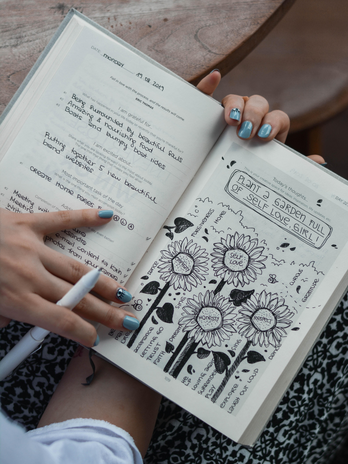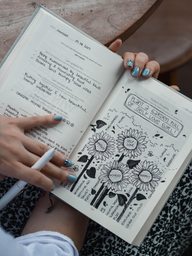Let me guess what you’re thinking:
- Everyone knows what they want to do with their life
- I will never make any real friends in college
- Everyone here is so much smarter than me; they must have made a mistake in letting me enroll
- I haven’t had a win since I got here
- I’m not doing enough
While college can bring out the best in us as we pursue our passions, it can also bring out the worst in us, such as anxiety, depression, low self-esteem, worry, guilt, etc. Suddenly, the tactics that worked for us in high school don’t exactly work in the land of unrealistic expectations and three-hour nights of sleep. If you have ever thought you’re alone in these struggles, please understand you are not. I’ve only been in college for two months, and I’ve heard the same worries and problems at least a hundred times from a hundred different sources. We are all in this together in a High School Musical type of way.
I’m not sure why we are so quick to think negatively when in new situations; however, I do know one tool that will help anyone who suffers from nasty thoughts that weigh them down and play on a loop consistently throughout the day. Seriously, these nasty thoughts are relentless. You’ll be in the dining hall eating pizza and salad wondering if your mother made a mistake birthing you.
The reframing negative thoughts exercise only requires a piece of paper, a writing utensil, and a chunk of time (occasionally, I sit on the floor to ground myself during this exercise, but this isn’t a requirement). Once you’re settled, I want you to worry. Yes, you heard me right. For as long as you can, write down every single negative thought you remember having today, along with any events that triggered these thoughts. A few examples of these thoughts can look like
- “I saw a large group of friends sitting together outside the Starbucks. I’m so alone. No one will ever want to be friends with me. I’ll never make friends.”
- “A girl I know just applied for an internship, and another student I know got into one of the most prestigious clubs on campus. I’m falling behind, and I can’t catch up.”
- “I thought I knew what I wanted to do before I got here. It feels like I’m failing all my classes, and I’m not even sure what my major is I don’t know what I want to do with my life, and I should know by now. Everyone else does.”
After writing down all your thoughts, give yourself space to process. Sometimes, we don’t even know we have these beliefs rattling around until we acknowledge their existence and influence in our lives. It can be overwhelming to admit these feelings to paper—maybe even embarrassing. Once again, I want to remind you that someone out of the seven billion people currently on Earth has thought the same thought you’ve thought. So even though you feel embarrassed or like you are overreacting, remember you are never alone in these feelings.
The next part can be slightly uncomfortable or new for those struggling with pessimism, but this is where the magic happens. This next part is where the reframing occurs. Prepare to shift your mindset into a growth or hopeful one, one that wants what’s best things for you and believes in you. Then, respond to each thought you wrote individually with this new mindset, even if the optimism is awkward. For example:
- “I saw a large group of friends sitting together outside the Starbucks. I’m so alone. No one will ever want to be friends with me. I’ll never make friends.” It takes a moment to make friends in a new place. There are thousands of students enrolled in this university; logistically, at least one of them would find me funny or cool. I need to give myself time.
- “A girl I know just applied for an internship, and another student I know got into one of the most prestigious clubs on campus. I’m falling behind, and I can’t catch up.” I shouldn’t compare myself with people I barely know. I am not falling behind because everyone has their own path. If I want to try something new, I will create a game plan to put myself out there, but only because I want to and not because I’m comparing myself to someone else.
- “I thought I knew what I wanted to do before I got here. It feels like I’m failing all my classes, and I’m not even sure what my major is I don’t know what I want to do with my life, and I should know by now. Everyone else does.” Not everyone knows what they are doing with the rest of their life. They may have a clue, but everything is subject to change. Besides, change is good. It is better to explore other career options in a place with so many opportunities to try new things.
This exercise isn’t meant to dismiss your feelings or pretend your problems aren’t real. It encourages you to alter your view on a situation. While completing this exercise, pretend you are giving advice to a friend or a little sibling. You wouldn’t call a friend a total and complete failure, would you? At least, I hope you won’t.
Overall, please know you aren’t alone, and you aren’t hopeless. College is a transition, and nobody becomes an expert on navigating the college world overnight. Being kind to yourself isn’t being delusional, and it isn’t a sign of laziness. Take care of yourself and your thoughts!


